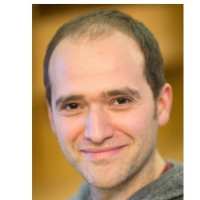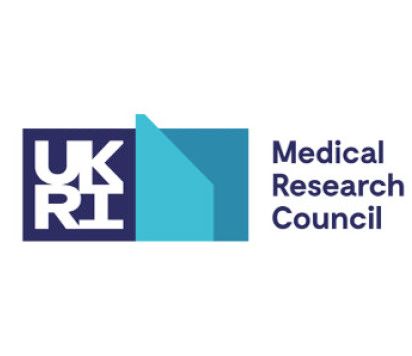2019/20 Seminars
- Dr Can Zhang, Pathogenic Mechanisms and Therapeutic Intervention
- Dr Charles Breeze, Atlas and developmental dynamics of mouse DNase
- Dr Lars Velten, Targeted Perturb-seq enables genome-scale genetic screens
- Dr Nael Nadif Kasri, Neurons-on-a-chip to model neurodevelopmental disorders
- Anna Cuomo, Population-scale single-cell RNA-seq profiling
- Prof Jonathan Mill, (Epi)genomic trajectories to neuropsychiatric and neurodegenerative disease
- Dr Vikram Agarwal, Predicting mRNA Abundance
- Dr Diego Villar Lozano, Enhancer Evolution across 20 Mammalian Species
- Dr Javier Alegre Abarrategui, Early aggregation in neurodegeneration
- Prof Peter Giese, Generation of 2-input synapses
- Dr Mikhail Spivakov, Dissecting the logic of remote gene control
- Dr Jean-Michel Fustin, The methyl cycle in health and disease
- Dr Raffaella Nativio, The epigenetic landscape of healthy aging
- Dr Silvia Bolognin, Stem cell-derived 3D in vitro cultures
- Dr Yu Ye, Reversing protein aggregation in dementia
- Dr Nathan Skene, Genetic identification of cell types
- Dr Sarah Marzi, Dysregulation of histone acetylation
Alzheimer’s Disease – Pathogenic Mechanisms and Therapeutic Intervention
Dr Can Zhang
Massachusetts General Hospital & Harvard Medical School
Biography
Dr. Can (Martin) Zhang is an Assistant Professor of Neurology at the Massachusetts General Hospital (MGH) and the Harvard Medical School (HMS). Dr. Zhang received his MD and Master’s degree at the Weifang Medical College, China and then his PhD at Drexel Univ., PA, followed by a post-doctoral fellowship at MGH, before he became an Assistant Professor of Neurology at MGH and HMS.
Dr. Zhang’s research has been focused on abeta-related molecular mechanisms and compounds in Alzheimer’s disease (AD), particularly those with potentials for a better understanding and intervention of AD. He has studied AD-related genes and compounds that modulate abeta generation, including UBQLN1, ATXN1, curcumin, gamma-secretase modulators (GSMs) and elastin-like proteins; and recently molecules that change abeta clearance mediated by microglia, including cromolyn and an herbal remedy HLXL. These preclinical findings have not only provided mechanistic evaluation of drugs currently under clinical trial investigation for AD, e.g. cromolyn, but also promoted potential trials in AD for molecules, including GSMs and HLXL. Dr. Zhang has also studied aging-related biomarkers underlying AD, including gamma-secretase, RIPK1 and Sirt1, and is co-inventing new molecular probes for visualizing these proteins in the brain.
Abstract
Alzheimer’s disease (AD) is a progressive neurodegenerative disorder and the primary cause of dementia with no cure. Although the pathogenesis of AD has not been completely elucidated, evidence suggests that it is centered on cerebral accumulation of the small peptide, β-amyloid (Aβ), a proteolytic cleavage product of amyloid-β precursor protein (APP) by β- and γ-secretase. Characterization of molecular mechanisms that change Aβ levels and APP processing should new provide insights and elucidate the pathogenesis of AD; and development of interventions that reduce Aβ levels may provide potential therapeutics for AD.
Host
Hosted by Dr Yu Ye (yu.ye1@imperial.ac.uk)
Date and time
Wednesday 5th August 2020
15:00-16:00
Location
Zoom online seminar
Atlas and developmental dynamics of mouse DNase I hypersensitive sites
Dr Charles Breeze
National Cancer Institute, NIH
Abstract
Early mammalian development is orchestrated by genome-encoded regulatory elements populated by a changing complement of regulatory factors, creating a dynamic chromatin landscape. To define the spatiotemporal organization of regulatory DNA landscapes during mouse development and maturation, we generated nucleotide-resolution DNA accessibility maps from 15 tissues sampled at 9 intervals spanning post-conception day 9.5 through early adult, and integrated these with 41 adult-stage DNase-seq profiles to create a global atlas of mouse regulatory DNA. Collectively, we delineated >1.8 million DNase I hypersensitive sites (DHSs), with the vast majority displaying temporal and tissue-selective patterning. Here we show that tissue regulatory DNA compartments show sharp embryonic-to-fetal transitions characterized by wholesale turnover of DHSs and progressive domination by a diminishing number of transcription factors. We show further that aligning mouse and human fetal development on a regulatory axis exposes disease-associated variation enriched in early intervals lacking human samples. Our results provide an expansive new resource for decoding mammalian developmental regulatory programs.
Host
Hosted by Dr Sarah Marzi (s.marzi@imperial.ac.uk)
Date and time
Tuesay 28th June
12:00-13:00
Location
Zoom online seminar
Targeted Perturb-seq enables genome-scale genetic screens in single cells
Dr Lars Velten
Centre for Genomic Regulation
Abstract
The transcriptome contains rich information on molecular, cellular and organismal phenotypes. However, experimental and statistical limitations constrain sensitivity and throughput of genetic screening with single-cell transcriptomics readout. To overcome these limitations, we introduce targeted Perturb-seq (TAP-seq), a sensitive, inexpensive and platform independent method focusing single-cell RNA-seq coverage on genes of interest, thereby increasing the sensitivity and scale of genetic screens by orders of magnitude. TAP-seq permits routine analysis of thousands of CRISPR-mediated perturbations within a single experiment, detects weak effects and lowly expressed genes, and decreases sequencing requirements by up to 50-fold. We apply TAP-seq to generate perturbation-based enhancer–target gene maps for 1,778 enhancers within 2.5% of the human genome. We thereby show that enhancer– target association is jointly determined by three-dimensional contact frequency and epigenetic states, allowing accurate prediction of enhancer targets throughout the genome. In addition, we demonstrate that TAP-seq can identify cell subtypes with only 100 sequencing reads per cell.
Host
Hosted by Dr Sarah Marzi (s.marzi@imperial.ac.uk)
Date and time Location
Wednesday 24th June
12:00-13:00
Location
Zoom online seminar
Neurons-on-a-chip to model neurodevelopmental disorders
Dr Nael Nadif Kasri
Radboud University Medical Center,
Donders Institute for Brain, Cognition and Behaviour
Biography
Nael Nadif Kasri, PhD., is associate professor at the Department of Human Genetics of Radboud University Medical Centre and is the head of the Molecular and Cellular Neurophysiology lab, consisting of two technicians, 9 PhD students and 3 postdocs. He is a neurobiologist who has extensive experience with the molecular mechanisms underlying synaptic plasticity, including imaging and electrophysiological methods in cellular and animal models. Since the start of his postdoctoral studies he has been interested in understanding the molecular mechanisms of neurodevelopmental disorders. In his postdoc he mainly focused on understanding the function of Intellectual disability (ID) genes related to the RhoGTPase pathway. In 2011 he joined the Human Genetics department (Nijmegen, the Netherlands) where he started several collaborations to understand the synaptic basis of ID. As such he has focused his research on several syndromes that were initially discovered in Nijmegen, being Kleefstra syndrome and Koolen-de Vries Syndrome. One of his recent contributions is the implementation of multi-electrode recordings in human induced pluripotent stem cells. This technique enables the stratification of patients who suffer from autism, epilepsy, which may lead to more specific therapies. Dr. Nael Nadif Kasri was awarded with a Human Frontiers fellowship at Cold Spring Harbor Laboratories (USA), where he performed his second postdoctoral study. Since 2011 he has his own research group at the Radboudumc, and became part of the Donders Institute in Nijmegen, the Netherlands. There he was granted a prestigious Hypatia fellowship, a Marie Curie Career Integration Grant, NIH DECODE grant and more recently a SFARI pilot grant.
Abstract
Great progress has been made over recent years towards the identification of genes linked to neurodevelopmental disorders (NDDs), resulting in hundreds of candidate genes. A remaining challenge, however, is to connect the genetic causes of NDDs to processes that establish and/or modify neuronal circuit function. The recent developments in induced pluripotent stem cells (iPSCs) have provided us with the ability to model patient-specific neuronal networks. In this talk I will discuss our strategy to link genetic deficits observed in patients with neuronal network measurements. We combine iPSC-derived neurons (excitatory and inhibitory) with micro-electrode arrays and transcriptomics analysis to unravel the pathomechanism underlying specific syndromes. I will discuss three well-described NDDs caused by mutations in different histone modifiers, respectively in EHMT1, KANSL1 and KMT2D. In general, our data indicate that neuronal network measurement of iPSC-derived neurons on MEAs is a robust and sensitive method to perform genotype-phenotype analyses for NDDs and can be a powerful platform for drug screening assays.
Date and time
Wednesday 8th July 2020
14:00-15:00
Location
Zoom online seminar
Population-scale single-cell RNA-seq profiling across dopaminergic neuron differentiation
Anna Cuomo
EMBL-EBI
Abstract
Common genetic variants can have profound effects on cellular function, but studying these effects in primary human tissue samples and during development is challenging. Human induced pluripotent stem cell (iPSC) technology holds great promise for assessing these effects across different differentiation contexts. Here, we use an efficient pooling strategy to differentiate 215 iPS cell lines towards a midbrain neural fate, including dopaminergic neurons, and profile over 1 million cells sampled across three differentiation timepoints using single cell RNA sequencing. We find that the proportion of neuronal cells produced by each cell line is highly reproducible over different experimental batches, and identify robust molecular markers in pluripotent cells that predict line-to-line differences in cell fate. We identify expression quantitative trait loci (eQTL) that manifest at different stages of neuronal development, and in response to oxidative stress, by exposing cells to rotenone. We find over one thousand eQTL that colocalise with a known risk locus for a neurological trait, nearly half of which are not found in GTEx. Our study illustrates how coupling single cell transcriptomics with long-term iPSC differentiation can profile mechanistic effects of human trait-associated genetic variants in otherwise inaccessible cell states.
Host
Hosted by Dr Sarah Marzi (s.marzi@imperial.ac.uk)
Date and time
Tuesday 7th July
15:00-16:00
Location
Zoom online seminar
(Epi)genomic trajectories to neuropsychiatric and neurodegenerative disease
Prof Jonanthan Mill
Professor of Epigenomics
University of Exeter Medical School
Biography
Jonathan Mill is Professor of Epigenomics at the University of Exeter Medical School. He graduated with a degree in Human Sciences from Oxford University, where he took a particular interest in cannibalism, before undertaking his PhD in Psychiatric Genetics at the Institute of Psychiatry, King’s College London. After spending three years as a Canadian Institutes of Health Research (CIHR) postdoctoral fellow at the University of Toronto, he returned to the Institute of Psychiatry to establish the Psychiatric Epigenetics group in the MRC Social, Genetic and Developmental Psychiatry Centre. He joined the University of Exeter Medical School in 2012 where he heads the Complex Disease Epigenomics Group. Jonathan’s group studies the role of epigenetic processes in complex disease, with a particular emphasis on neurodegenerative and neuropsychiatric phenotypes. Current areas of research include: 1) regulatory genomic profiling in post-mortem brain tissue; 2) investigating the role of epigenetic variation in mediating the onset of neuropathology in cellular/rodent models; 3) describing dynamic genomic processes in human brain development and aging; and 4) exploring interactions between the epigenome, environment and DNA sequence variation, with the aim of undertaking an integrated genetic-epigenetic approach to disease.
Abstract
The research in my group is focused on understanding both the ‘causes’ and ‘consequences’ of genomic variation in the brain, and the role this plays in neuropsychiatric and neurodegenerative disease. Despite major advances in understanding the risk factors (both genetic and environmental) for these diseases, the mechanisms involved in the onset and progression of pathology are not fully understood and long-term treatments to reverse cellular disease processes in the brain remain elusive. Although genetic studies have been highly successful in identifying variants associated with brain disorders, there remains uncertainty about the specific causal genes involved and how their function is dysregulated during the progression of neuropathology. Increased understanding about the functional complexity of the genome has led to recognition about the role of non-coding regulatory variation in health and disease. Our work aims to characterise the regulatory regions, epigenetic modifications and transcriptional patterns defining the different brain regions and cell-types in the human central nervous system, and assess their role in neurodevelopment, ageing and disease. In this talk I will present on-going work from my group aimed at identifying regulatory genomic variation associated with a diverse range of brain phenotypes. I will describe the dynamic nature of DNA modifications across human brain development and ageing and describe the impact of genetic variation on the epigenome during the life-course. Novel tools mean that it is now feasible to examine epigenetic variation across the genome in large numbers of samples, and I will give an overview of our recent epigenome-wide association studies (EWAS) of schizophrenia and dementia. Finally, I will outline some of the issues related to epigenetic epidemiological studies of neuropsychiatric disease and explore the feasibility of identifying peripheral biomarkers of disease phenotypes manifest in inaccessible tissues such as the brain.
Host
Hosted by Dr Sarah Marzi (s.marzi@imperial.ac.uk)
Date and time
Wednesday 24th June
12:00-13:00
Location
Zoom online seminar
Predicting mRNA Abundance Directly from Genomic Sequence Using Deep Convolutional Neural Networks
Dr Vikram Agarwal
Calico Life Sciences
Abstract
Algorithms that accurately predict gene structure from primary sequence alone were transformative for annotating the human genome. Can we also predict the expression levels of genes based solely on genome sequence? Here, we sought to apply deep convolutional neural networks toward that goal. Surprisingly, a model that includes only promoter sequences and features associated with mRNA stability explains 59% and 71% of variation in steady-state mRNA levels in human and mouse, respectively. This model, termed Xpresso, more than doubles the accuracy of alternative sequence-based models and isolates rules as predictive as models relying on chromatic immunoprecipitation sequencing (ChIP-seq) data. Xpresso recapitulates genome-wide patterns of transcriptional activity, and its residuals can be used to quantify the influence of enhancers, heterochromatic domains, and microRNAs. Model interpretation reveals that promoter-proximal CpG dinucleotides strongly predict transcriptional activity. Looking forward, we propose cell-type-specific gene-expression predictions based solely on primary sequences as a grand challenge for the field.
Host
Hosted by Dr Sarah Marzi (s.marzi@imperial.ac.uk)
Date & Time
Tuesday 23 June
17:00-18:00
Location
Zoom Online Seminar
Enhancer Evolution across 20 Mammalian Species
Dr Diego Villar Lozano
Abstract
The mammalian radiation has corresponded with rapid changes in noncoding regions of the genome, but we lack a comprehensive understading of regulatory evolution in mammals. Here, we track the evolution of promoters and enhancers active in liver across 20 mammalian species from six diverse orders by profiling genomic enrichment of H3K27 acetylation and H3K4 trimethylation. We report that rapid evolution of enhancers is a universal feature of mammalian genomes. Most of the recently evolved enhancers arise from ancestral DNA exaption, rather than lineage-specific expansions of repeat elements. In contrast, almost all liver promoters are partially or fully conserved across these species. Our data further reveal that recently evolved enhancers can be associated with genes under positive selection, demonstrating the power of this approach for annottaing regulatory adaptations in genomic sequences. These results provide important insight into the functional genetics underpinning mammalian regulatory evolution.
Date and time
Tuesday 2nd June 2020
15:00-16:00
Location
Zoom Online Seminar
Visualisation in situ of early aggregation in neurodegeneration
Dr Javier Alegre Abarrategui
Clinical Senior Lecturer in Neuropathology
Imperial College London
Biography
Dr Javier Alegre-Abarrategui is a Clinical Senior Lecturer at Imperial in Neuropathology at the Neurodegeneration and Neuroinflammation Centre, and Honorary Consultant Neuropathologist at Charing Cross Hospital. He was previously based in Oxford at the Department of Neuropathology and the Department of Physiology, Anatomy and Genetics. Javier’s research focused on genetically-defined forms of PD, the use of human genomic constructs for animal and in vitro functional modelling and autophagy. More recently he has pioneered the development of novel tools to detect in situ early protein aggregates such as alpha-synuclein oligomers in human brain and has started to apply these tools to the dissection of the initial pathogenic processes in PD and Alzheimer’s disease.
Abstract
Neurodegenerative diseases such as Alzheimer’s or Parkinson’s disease are characterised by the aggregation and accumulation in the brain of certain proteins, tau and beta-amyloid in the former, alpha-synuclein in the latter. These proteins are physiologically widely expressed in the brain. In order to visualise pathologically aggregated protein over the background of physiological protein in brain tissue, several strategies are used, such as the use of antibodies specific for posttranslational modifications (e.g. phosphorylation) associated with the abnormal protein. We have developed a strategy based on proximity ligation assays that utilises the basic event of protein self-interaction to visualise aggregated protein but not monomeric physiological protein. Our assays for alpha-synuclein and tau are offering us a previously unrecognised window into earlier aggregation pathology, which could lead to a better understanding of the cellular processes driving disease.
Date and time
Wednesday 29th March 2020
12:15-13:15
Location
Zoom Online Seminar
A novel memory mechanism: Generation of 2-input synapses?
 Prof Peter Giese
Prof Peter Giese
Chair of Neuroscience of Mental Health
King's College London
Biography
Karl Peter Giese is Professor of Neurobiology of Mental Health at King's College London. He investigates memory mechanisms in health and disease, using mouse models. He has published more than 100 research articles and his current H-index is 51.
Abstract
A small fraction of the synapses in the hippocampus have two inputs. The role of these 2-input synapses is not well understood, but recently we obtained evidence that generation of these atypical synapses can enable memory formation when long-term potentiation (LTP) is impaired. First, we showed that in an LTP-deficient mouse model hippocampal memory can be formed and correlates with generation of 2-input synapses. Next, we found that 2-input synapses increase with ageing in the hippocampus and appear to enable memory formation, as LTP induction is impaired. Finally, our findings suggest that memories based on 2-input synapses are not as flexible as memories involving LTP.
Host
Hosted by Dr Sam Barnes (Samuel.Barnes@imperial.ac.uk)
Contact Dr Jennifer Podesta (j.podesta@imperial.ac.uk) to arrange to meet with the speaker
Date and time
Monday 16 December 2019
13.00-14.00
Location
E519 Burlington Danes Building, Hammersmith Campus
Dissecting the logic of remote gene control
 Dr Mikhail Spivakov
Dr Mikhail Spivakov
MRC London Institute of Medical Sciences
Imperial College London
We are interested in how genomic and epigenetic information is integrated with extrinsic signals to promote concerted changes in gene expression.
Abstract
Our lab combines experimental and computational approaches to understand the regulation and function of gene enhancers. Metazoan gene regulation relies on joint activity of multitudes of enhancers, many of which localise large distances away from their target genes. Enhancers are highly enriched for disease-associated variants, and also underpin some Mendelian developmental disorders, highlighting their importance in gene control. I will present our recent work including the development of the methodology for detecting enhancer-promoter interactions at high confidence, dissecting the mechanisms that facilitate these interactions and leveraging them for interpreting disease-associated variants.
Hosts
Hosted by Dr Nathan Skene and Dr Sarah Marzi
Date and time
Monday 09 December 2019
14.00-15.00
Location
E519 Burlington Danes Building, Hammersmith Campus
The methyl cycle in health and disease
Monday 16th September 2019
14.00-15.00
E519 Burlington Danes Building
Hammersmith Campus

After completing his PhD in seasonal rhythms at the University of Aberdeen (United Kingdom), Dr Fustin came to Japan in 2008 as a postdoctoral fellow, to work with Prof. Okamura on the neurobiology of circadian rhythms at the Department of Systems Biology in Kyoto University. There, he developed his own interests in the link between the circadian clock and the metabolism of methyl groups. These studies led to the discovery that the N6-methylation of adenosine nucleotides within the mRNA sequence was a circadian pacemaker. In 2014, he became Adjunct Lecturer, then Associate Professor in 2018. He was the first European to obtain a tenured faculty position at the Graduate School of Pharmaceutical Sciences of Kyoto University, where he founded his Laboratory of Molecular Metabology in 2019. His investigations on RNA methylation led to the characterization of a novel alternatively-spliced Casein Kinase 1 Delta isoform, functionally distinct from the canonical one and expressed at higher levels in specific peripheral tissues. His laboratory now focuses on the physiological functions of mRNA methylation and the pathological consequences of RNA methylation deficiency in adult organisms. In 2019, he was awarded a UKRI Future Leaders Fellowship and will relocate to the University of Manchester in early 2020.
The epigenetic landscape of healthy aging and Alzheimer's disease
 Dr Raffaella Nativio
Dr Raffaella Nativio
Research Associate in Epigenetics
University of Pennsylvania
Abstract
Aging is the top risk factor for Alzheimer's disease (AD),although the underlying mechanisms remain unclear. The chromatin state, in particular through the mark H4K16ac, has been implicated in aging and thus may play a pivotal role in age-associated neurodegeneration. Here we compare the genome-wide enrichment of H4K16ac in the lateral temporal lobe of AD individuals against both younger and elderly cognitively normal controls. We find that while normal aging leads to H4K16ac enrichment, AD entails dramatic losses of H4K16ac in the proximity of genes linked to aging and AD. Our analysis highlights the presence of three classes of AD-related changes having distinctive functional roles. Furthermore, we discover an association between the genomic locations of significant H4K16ac changes with genetic variants (SNPs) identified in prior AD genome-wide association studies (GWAS) and with expression quantitative trait loci (eQTLs). Our results establish the basis for an epigenetic link between aging and AD.
Host
Hosted by Professor Paul M Matthews (p.matthews@imperial.ac.uk)
Contact Dr Jennifer Podesta (j.podesta@imperial.ac.uk) to arrange to meet with the speaker.
Date and time
Monday 29 July 2019
16:00 - 17:00
Location
E519 Burlington Danes, Hammersmith Campus
Stem cell-derived 3D in vitro cultures as a relevant model for Parkinson’s disease Dr Silvia Bolognin
Dr Silvia Bolognin
Luxembourg Centre for Systems Biomedicine (LCSB)
University of Luxembourg
Biography
Dr. Silvia Bolognin is a research associate at the University of Luxembourg. She graduated in Pharmaceutical Chemistry and Technology and she received her Ph.D. in Tissue and Grafting Engineering at the University of Padua, Italy. She was a post-doc fellow at the Institute for Basic Research in Developmental Disabilities in Staten Island, NY in the lab of prof. Khalid Iqbal and at the University of Verona, Italy. She was also a co-founder and acted as CTO of a spin-off company from the University of Luxembourg. Dr. Bolognin has focused on the mechanisms that regulate abnormal protein alteration in Alzheimer´s and Parkinson´s disease and the use of stem cell technology for disease modelling.
Abstract
The identification of promising drug candidates against Parkinson’s disease (PD) is hampered by the lack of sufficiently representative in vitro models. Human induced pluripotent stem cells (iPSCs) represent a promising tool to fill this gap. We optimized the cultivation of PD patient-specific neurons, derived from patients carrying the LRRK2-G2019S mutation, in 3D microfluidics. 3D conditions elicited an intrinsic time dependent dopaminergic degeneration due to LRRK2-G2019S, which was not observed in standard 2D conditions. This was preceded by an altered mitochondrial morphology, and increased cell death in LRRK2-G2019S neurons compared to isogenic lines without using stressor agents. We further increased the complexity of the models by generating midbrain organoids. In LRRK2-G2019S midbrain organoids, a decreased expression of astrocytes was observed after 35 days of differentiation. This was accompanied by an altered transcriptomic profile as shown by single-cell RNA sequencing. Interestingly, the defective astrocyte differentiation and the dopaminergic degeneration contributed to the acquisition of a senescent phenotype in organoids carrying the LRRK2-G2019S mutation. This data supports the use of advanced in vitro models to recapitulate key pathological hallmarks of this neurodegenerative disorder.
Host
Hosted by Professor Paul M Matthews (p.matthews@imperial.ac.uk)
Contact Dr Jennifer Podesta (j.podesta@imperial.ac.uk) to arrange to meet with the speaker.
Date and time
Wednesday 24 July 2019
15:00 - 16:00
Location
E519 Burlington Danes, Hammersmith Campus
Maintaining cell homeostasis by proteasome re-organisation – reversing protein aggregation in dementia
 Dr Yu Ye
Dr Yu Ye
Sir Henry Wellcome Research Fellow in Biotechnology
University of Cambridge and Harvard University
Biography
Yu Ye completed his PhD at the MRC-LMB, studying how deubiquitinating enzymes of the ubiquitin-proteasome system (UPS) interacted with distinct ubiquitin signals. During this time, he uncovered a novel mechanism of regulating deubiquitinase activity through the conformation of ubiquitin chains. Several of these deubiquitinases have since been shown to regulate cell stress responses implicated in neurodegenerative disorders. Awarded with a Sir Henry Wellcome Fellowship for his postdoctoral research, he initiated and built up a collaboration between Harvard and Cambridge to develop his own research direction, focusing on reversing protein aggregation with the UPS. He conceptualised and directed research in this novel area, for which he also established a dedicated research infrastructure. This resulted in several senior-author studies describing how proteasomes actively restricted aggregate size in vitro and how proteasomes re-organised to target aggregates in cells. He is now excited to expand this novel area of research into understanding the role of proteasome function in dementia.
Abstract
Aggregation of misfolded proteins is a pathological process implicated in neurodegenerative disorders and dementia. While much research has focused on how aggregates are assembled, the reverse process of aggregate removal is not well-studied. Reducing cell stress by limiting toxic protein aggregates is an important area of research, opening up novel potential routes of therapeutic intervention. Using state-of-the-art super-resolution and light-sheet microscopy and cell biology approaches, I have developed a unique research direction to investigate how proteasomes maintain cell homeostasis by targeting aggregates at distinct localisations. I also built up a dedicated research infrastructure and methodological approaches to study proteasomes and protein aggregates in cells. My in vitro results and studies in cells demonstrated that proteasomes restricted aggregate size and reorganised upon cell stress, assembling into foci around aggregates in a cytoskeleton-dependent manner. I will now to expand my research into characterising the mechanisms underlying proteasome response during aggregate entry into neurons, and during aggregate formation inside neurons over time. Uncovering processes involved in aggregate clearance and how proteasome malfunction is implicated in neuronal stress and degeneration will provide a better understanding of neurodegenerative disorders and ultimately establish approaches to restrict and reverse dementia.
Host
Hosted by Professor Paul M Matthews (p.matthews@imperial.ac.uk)
Contact Dr Jennifer Podesta (j.podesta@imperial.ac.uk) to arrange to meet with the speaker.
Date and time
Friday 26 July 2019
11:30 - 12:30
Location
E519 Burlington Danes, Hammersmith Campus
Genetic identification of cell types underlying brain disorders and cognitive traits
 Dr Nathan Skene
Dr Nathan Skene
Edmond and Lily Safra-UK DRI Junior Research Fellow in Bioinformatics
Imperial College London
Biography
Nathan Skene did an undergraduate degree in Artificial Intelligence and Cybernetics at the University of Reading, followed by an MPhil in Computational Biology at Cambridge. His PhD was at the Sanger Institute working with Prof Seth Grant on the Genes2Cognition programme. During his PhD he worked on analysing the transcriptomic changes seen in a mice carrying a wide range of synaptic mutations. His interests lie in using human genetics to gain insight into the neurobiology of brain disorders and cognitive traits. He did his postdoc in the lab of Jens Hjerling-Leffler at the Karolinska Institutet, where he developed a series of method which made it possible to identify cell types underlying complex diseases using GWAS data. He recently moved to Imperial as an Edmund and Lily Safra Fellow.
Abstract
Using a cellular taxonomy of the brain from single-cell RNA sequencing we have evaluated whether disease associated genomic loci are linked to particular brain cell types. We find evidence that schizophrenia is best explained by independent associations with four cell types: medium spiny neurons, cortical neurogliaform cells, pyramidal neurons and glutamatergic cells of the superior colliculus. We find that other psychiatric and cognitive traits which show strong genetic correlations to schizophrenia due to shared cellular mechanisms. Depression and neuroticism are however found to have greater involvement of the dopaminergic and serotonergic cell types. Neurological disorders show clear differences with Alzheimers associated with microglia, Parkinsons with dopaminergic cells and oligodendrocytes, and Stroke with arterial smooth muscle cells. As no prior studies had implicated oligodendrocytes as being causally involved in Parkinsons, we further investigated cellular changes in post-mortem Parkinson’s brains: we found that changes in oligodendrocytes precedes dopaminergic neuron degeneration in the substantia nigra.
Host
Hosted by Professor Paul M Matthews (p.matthews@imperial.ac.uk)
Contact Dr Jennifer Podesta (j.podesta@imperial.ac.uk) to arrange to meet with the speaker.
Date and time
Monday 22 July 2019
16:00 - 17:00
Location
E519 Burlington Danes, Hammersmith Campus
Dysregulation of histone acetylation in Alzheimer’s disease
 Dr Sarah Marzi
Dr Sarah Marzi
Centre for Genomics and Child Health, Blizard Institute
Queen Mary University of London
Biography
Sarah Marzi studied mathematics and psychology at the University of Freiburg before completing a PhD in epigenetics at King’s College London. Her research interests lie in epigenetics of human complex diseases, particularly those relating to brain and neuropsychiatric phenotypes, and she uses genome-wide genetic and epigenetic techniques as well as innovative bioinformatic and statistical approaches to investigate epigenetic dysregulation in disease. Sarah is currently a postdoctoral researcher in Vardhman Rakyan’s lab at Queen Mary University of London working on epigenetic responses to nutritional stressors and genetic variation in human ribosomal DNA.
Abstract
Recent studies have implicated a role for regulatory genomic variation in Alzheimer’s disease (AD) progression, finding widespread evidence for altered DNA methylation associated with neuropathology. To date, however, few studies have systematically examined other types of regulatory genomic modifications in AD. This talk will focus on results from a recent genome-wide study of lysine H3K27 acetylation (H3K27ac) – a robust marker of active enhancers and promoters – in entorhinal cortex samples from AD cases and matched controls (Marzi et al., 2018. Nat Neurosci).
In addition to widespread acetylomic variation associated with AD neuropathology, we identified differentially acetylated peaks in the vicinity of genes implicated in both tau and amyloid neuropathologies, as well as in genomic regions containing variants associated with sporadic late-onset AD. Partitioned heritability analysis highlighted a significant enrichment of AD risk variants in entorhinal cortex H3K27ac peak regions and AD-associated variable H3K27ac was associated with transcriptional variation at proximal genes including CR1, GPR22, KMO, PIM3, PSEN1, and RGCC. This is the first study of variable H3K27ac yet undertaken for AD; in addition to identifying molecular pathways associated with AD neuropathology, it serves as a framework for quantitative genome-wide studies of this modification in complex disease.
Host
Hosted by Professor Paul M Matthews (p.matthews@imperial.ac.uk)
Contact Dr Jennifer Podesta (j.podesta@imperial.ac.uk) to arrange to meet with the speaker.
Date and time
Wednesday 17 July 2019
16:00 - 17:00
Location
E519 Burlington Danes, Hammersmith Campus


